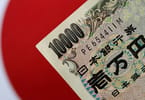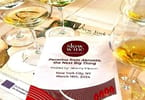South Korea’s Oh Jee-chul, the president and CEO of the Korea Tourism Organization, has the backing of his government in his bid to become the next secretary-general of the United Nations World Tourism Organization. And yet, he is one very hard person to get a hold of. The quest to interview Jee-chul began at this year’s ITB Berlin, where I was told that I “missed him by a few minutes.” Once back at eTN headquarter in Hawaii, numerous phone calls were made to the KTO office in Seoul, South Korea. The idea of interviewing Jee-chul became an intricate affair, because as eTN sought out to interview him, he was supposedly traveling to various parts of the world. At some points, the KTO’s Seoul office could not even make up its mind whether Jee-chul was in South America or Germany. All the while, interviews of him kept appearing in The Korea Times.
Then an aide to the Korean UNWTO secretary general suggested that I send an email to [apsaugotas el. paštu], and within a day, a person by the name of Hyo Won Ahn answered my email. In the email, Won Ahn stated: “Now Dr.Oh is on his business trip to several countries and comes back to Korea on May 2, and again will head to Mali for the Executive Council of the UNWTO on May 4. With such a tight schedule, I am afraid he is not able to spare time for the interview. However, if you send me a questionnaire, I will report to him and provide his answers by e-mail.”
As a result, I had to resort to an unprecedented act: send the questions via email. It was a last-ditch hope to get any kind of response from Jee-chul. The end result is not in any way the standard interview that I have conducted in the past, as Jee-chul picked and chose which questions to address. At the UNTWO general assembly in Cartagena, Colombia, UNWTO identified its two main challenges – climate change and alleviation of poverty. Shockingly, the Korean candidate could not indentify these two problems.
Interestingly, the Nigerian paper, The Daily Trust, has already proclaimed Jee-chul as the frontrunner for the job of UNWTO secretary general. Whether he gets the job will be decided on this week when the UNWTO executive council meets in Mali from May 7 to 8. Would he be your guy for the job? The below “interview” may provide an insight to the question.
How is Korea tourism addressing the issue of economy?
Oh Jee-chul: While Korea has entered into a period of stagnation akin to the global economy, the tourism industry has played a crucial role in revitalizing the national economy. The Korean tourism industry was successful despite the worldwide economic recession in exploiting the depreciated Korean won and hence drawing about 6.89 million tourists into Korea from around the world resulting in US$9 billion in tourist receipts for the year. From January to February this year, the number of tourists visiting Korea was 1.28 million, an increase of 27.5 percent compared to the same period last year.
The Korea Tourism Organization has devoted its best efforts to key projects such as marketing campaigns designed to highlight the benefits of traveling to Korea while the won is weak, medical tourism, the MICE industry and green tourism, with the ultimate goal of attracting 10 million visitors from around the world by 2012.
Recently attended the ITB Berlin, why was it important for South Korea to have a presence at the show? What were your goals and were they achieved?
Jee-chul: As one of the world’s most popular international travel fairs, it is very important to have a presence at the ITB to represent and introduce Korean tourism to the world. Korea has been a participant in the fair for the last few years, and we are pleased that, this year, the Korean booth was awarded the prize for top exhibitor, as well as for best exhibitor in the Asia/Australia/Oceania category. Also, the Korean booth attracted many visitors and more than 3,000 business meetings were held. Overall, it was very successful, and attendance was to boost Korea’s image, to one day make it a favored destination.
How would you define South Korean tourism?
Jee-chul: Our first official Korea tourism campaign, headed under the slogan ‘Korea, Sparkling,’ is designed to highlight the unique aspects of traveling in Korea, as well as represent the characteristics of Koreans and Korea such as vitality, enthusiasm, and dynamism.
What makes Korea different from other travel destinations is that Korea has been successful in maintaining tradition while simultaneously modernizing. In fact, Korea’s period of rapid innovation and economic development has directly contributed to Korea’s current environment. A visitor to Korea can easily visit a serene palace in the morning, do some serious shopping in the afternoon, partake in a traditional meal and finally, take in a Broadway-type show in the evening. After that, the dazzling nightlife awaits.
Furthermore, Korea is dedicated to both education and technology, which makes the medical tourism industry an attractive and viable economic driver. Korea is working toward being the leader in medical tourism in Asia in the near future and is in the process of building medical tourism infrastructure, as well simplifying the visa process for medical visitors.
What is the significance of South Korean tourism in today’s travel and tourism?
Jee-chul: As you may know, hallyu or the Korean Wave is a pop culture trend that has swept the Asian region in recent years, thanks to Korea’s exported dramas and music. These products can be defined as a combination of Asian traditional values and American-style dynamics and diverse genres. The hallyu movement has been responsible for being a magnet for attracting – touristsparticularly from China, Japan, and southeast Asia — who wish to visit the production sets and sites or museums dedicated to a show or a celebrity’s paraphernalia.
Furthermore, these days, travelers are generally in search of an experience that differs from the one they are use[d] to at home. Because of Korea’s homogeneity, Korean culture has being able to withstand some of the effects of globalization, and, therefore, Korea remains a country that offers the tourist an experience unlike any other found in the world. For example, with Korea’s rich Buddhist heritage, the national Templestay program – where a visitor can stay for a weekend or a week or longer at a Buddhist temple — is a great way to integrate oneself into a life completely different than what is available, in say, North America.
In addition, naturally, Korean cuisine is unique to the Korean peninsula, and so, travelers find cooking tours to be of interest and is a draw for the world’s epicures.
What is South Korea’s stance on climate change?
Jee-chul: Korea has been busy laying the framework for a responsible and green nation, with the ultimate goals of reducing greenhouse gas output and achieving a low carbon society. As a responsible member of the global community, Korea has been active in tackling its energy and environmental shortcomings under a program entitled “Low-Carbon, Green Growth.” The movement to reduce greenhouse gas and adopt environmentally-friendly measures has been extended to the tourism industry as well. Korea is undertaking tourism projects such as developing environmentally-friendly tourism and leisure cities, promoting ‘slow cities,’ and implementing ecotourism or green tourism programs in order to minimize CO2 emissions and environmental harm. In addition, the KTO will undertake an award program that recognizes tourism businesses that adopt green practices such as carbon labeling, as well as a standards program that details the toll a tourism product takes on the environment, to better inform consumers and to serve as a step toward accountability.
There is a bid to become the next UNWTO secretary-general. How much does South Korea want this post and how significant is it for your country?
Jee-chul: It has been contended that Korea’s contribution to the global community is still insufficient compared to its economic volume output despite Ban Ki-moon, the UN secretary-general, being from Korea. If elected, I will be the second Korean to head a UN organization following the late Lee Jong-wook, who headed the World Health Organization (WHO) in 2006. Korea understands the need to continue expanding the country’s role internationally.
Ką UNWTO initiatives has South Korea been supportive of?
Jee-chul: With the aim of facilitating national development and poverty elimination through tourism development, the Korean government contributed US$5 million to the establishment of the headquarters of the UNWTO ST-EP (Sustainable Tourism – Eliminating Poverty) Foundation in Seoul, Korea, in cooperation with the UNWTO in 2005. I have a special relationship with the UNWTO ST-EP Foundation, as I was actively involved in this project as Vice Minister of the Ministry of Culture and Tourism. Thanks to the momentum of the UNWTO ST-EP, Korea is playing an active role in poverty elimination in developing countries in Asia and Africa and is supporting tourism development in these countries by utilizing Korea’s know-how and monetary resources.
UNWTO has been rallying behind the two major causes in the last years; how do you feel about these two issues?
Jee-chul: Please give more specific information about the two issues you are referring to.
Tell us how you are ready and able to tackle the economy, climate change, and poverty alleviation.
Jee-chul: For a complete description of my vision and programs, please refer to the attached file of statement of policy and management intent for the UNWTO.
Pakalbėkim apie UNWTO’s relationship with South Korea with respect to Sustainable Tourism – Elimination of Poverty or ST-EP. There have been complaints of the lack of transparency and oversight for ST-EP; how do you respond? How much control does South Korea have over STEP? Is it true that South Korea has the capacity to appoint the next person who will head the ST-EP program? The former SG has indicated he will head the ST-EP Foundation. Given the concern over the amount of funds spent on administration on his watch, how do you feel about Mr. Frangialli heading ST-EP? If you become SG would you support a stronger governance of the ST-EP Foundation?
Jee-chul: At this time, it is either too early or inappropriate to answer these questions. However, following the election and pending the nature of the results, I’d be happy to go into more detail regarding these questions and concerns.
Can South Korea alone alleviate poverty in the way the UNWTO would?
Jee-chul: It would be impossible for one nation, one economy, or even one body to alleviate poverty. However, individual countries can contribute nonetheless, and I believe that with the support of Member States and other members of the UNWTO, UNWTO can be something special, and can be a force strong enough to make change happen.






















